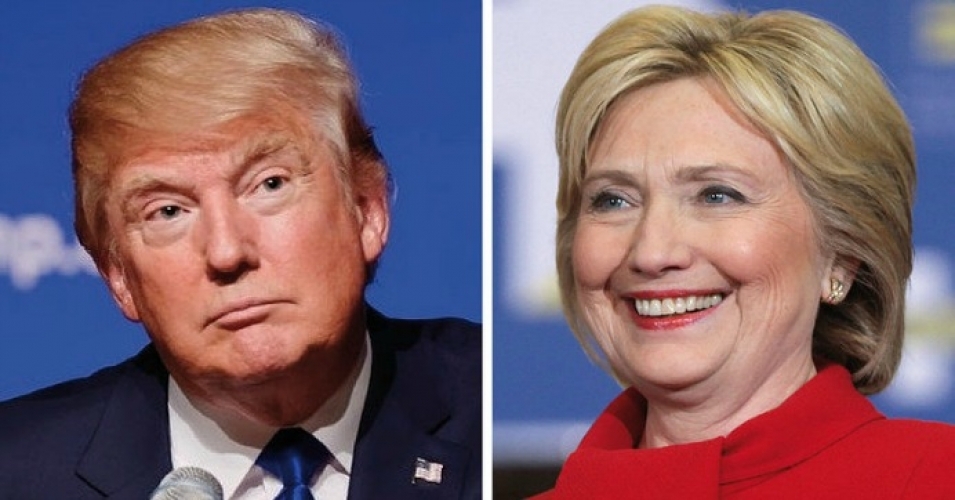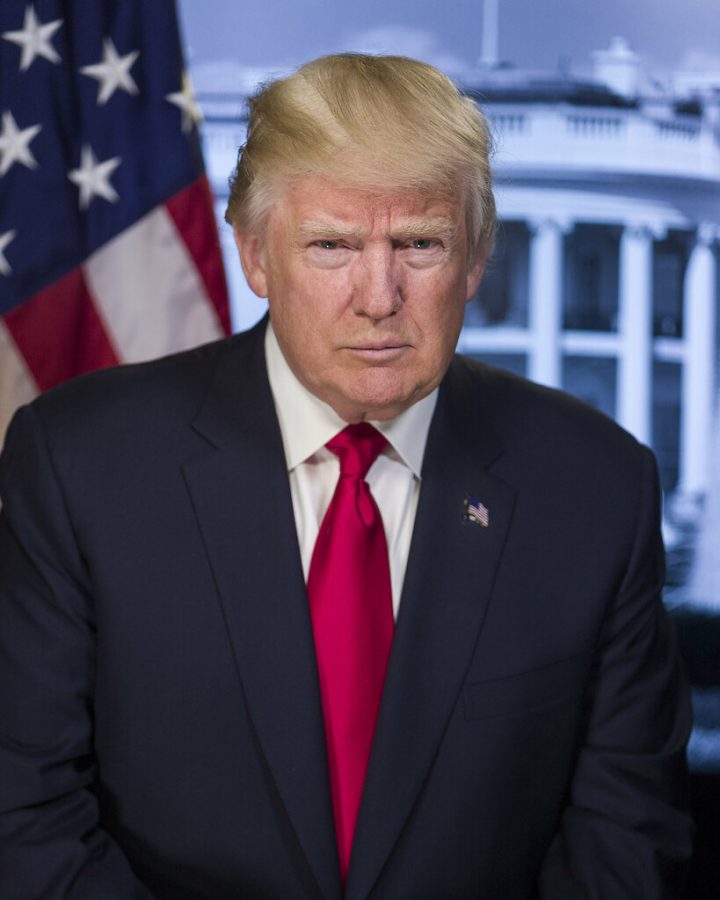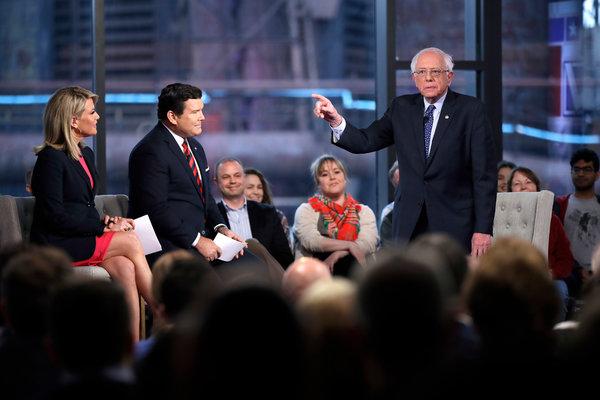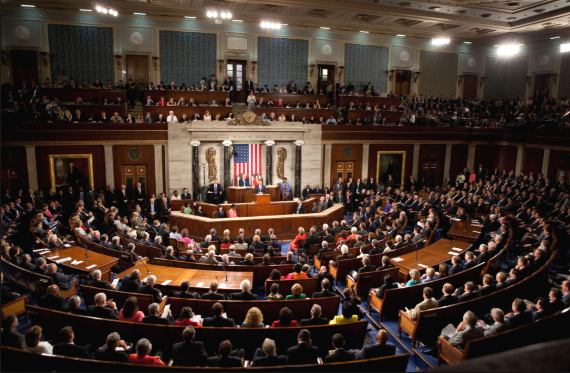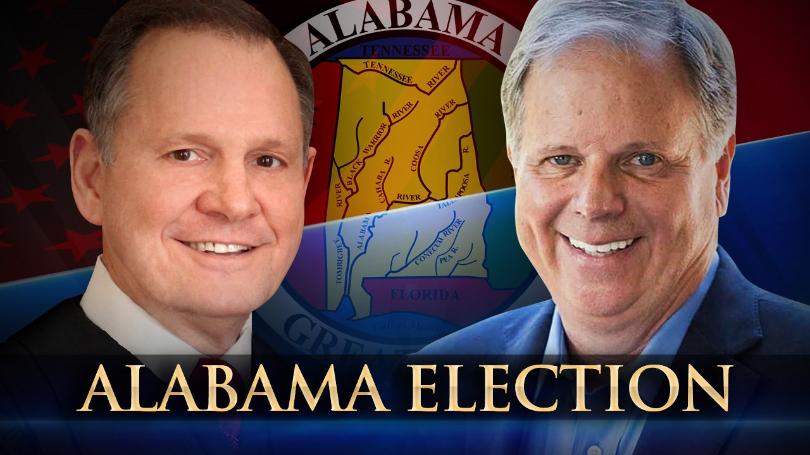Presidential candidates Donald Trump and Hillary Clinton faced off in the second presidential debate of the 2016 general election on Sunday, Oct. 9 at Washington University in St. Louis, Missouri.
This debate, moderated by Martha Raddatz of ABC and Anderson Cooper of CNN, was organized like a town-hall meeting, which is a departure from previous debate formats. This change was intended to give audience members, as well as American citizens through online submission, a chance to present their own questions to the candidates.
The debate began with discussion of the recently released 2005 audio in which Trump can be heard making disparaging and incredibly lewd comments about women, including a detailed description of his attempt to seduce a married woman just months after his own wedding to wife Melania Trump. In response to a viewer question about whether the candidates considered themselves good role models for American children, Trump went on with a non-responsive tirade before moderator Cooper directed him back to the question.
“We received a lot of questions about the tape released on Friday,” Cooper said. “You [Trump] called what you said locker room banter — kissing women without consent, grabbing their genitals. That is sexual assault. You bragged that you have sexually assaulted women.”
Trump continued to defend his words as “locker room talk,” admitting he was not proud of what he said, but not totally renouncing it or addressing the claims of sexual harassment. He then continued his answer by speaking about the threat of ISIS, without getting back to the initial audience question.
“I don’t think you understood,” Trump said. “This was locker room talk. I’m not proud of it. I apologize to my family. To the American people. Certainly I’m not proud of it. But this is locker room talk.”
Clinton took her rebuttal opportunity to commiserate the fact that this was the first Republican presidential nominee whose “fitness to serve” she felt obligated to question, highlighting the difference between Trump and a large portion of the Republican party at a time when many senior Republican leaders were abandoning his campaign over the recent video release.
“Well, like everyone else, I spent a lot of time thinking over the last 48 hours about what we heard and saw. You know, with prior Republican nominees for president, I disagreed with them. Politics, policies, principles,” Clinton said. “But I never questioned their fitness to serve. Donald Trump is different. I said, starting back in June, that he was not fit to be president and commander-in-chief. And many Republicans and independents have said the same thing. What we all saw and heard on Friday was Donald talking about women. What he thinks about women. What he does to women. And he has said that the video doesn’t represent who he is. But I think it’s clear to anyone who heard it that it represents exactly what he is.”
The video remained a point of contention, with another question being directed at Trump both through an online submission and moderator Raddatz about when Trump’s self-claimed behavioral change occurred: on the campaign trail, as Trump himself has claimed, or sometime more immediately following the time of the video 10 years ago?
In response, Trump claimed, somewhat wildly, that former president Bill Clinton was the greatest abuser of women in the history of American politics.
“If you look at Bill Clinton, [he was] far worse — mine are words, his was action. This is what he has done to women. There’s never been anybody in the history of politics in this nation that’s been so abusive to women, so you can say it any way you want to say it, but Bill Clinton was abusive to women,” Trump said. He then pointed to four women he had brought to the debate who claim to have been sexually abused by Bill Clinton. This was an ironic move, considering hours earlier, a tape was released containing his detailed account of sexual assault he perpetrated.
Clinton then alluded, as she had in the first debate, to the speech given by Michelle Obama at the 2008 DNC that Melania Trump plagiarized earlier this year.
“Let me say so much of what he [Trump] just said is not right, but he gets to run his campaign any way he chooses. He gets to decide what he gets to talk about. Instead of answering people’s questions, laying out the plans we have that make a better life and a better country. That’s his choice,” Clinton said. “When I hear something like that, I am reminded of what my friend, Michelle Obama, advised us all: ‘When they go low, you go high.'”
Talk then shifted to Clintons’ 33,000 deleted emails, which Trump claimed were deleted after Clinton was subpoenaed by Congress to release the emails sent over her private server during her tenure as Secretary of State. Trump went so far as to say that, if elected, he would appoint a special prosecutor to review the Clinton case again, after a government probe completed its investigation in recent months.
“If I win, I’m going to instruct the attorney general to get a special prosecutor to look into your situation because there’s never been so many lies, so much deception,” Trump said. “Never been anything like it and we’re going to have a special prosecutor. When I speak, I go out and speak, the people of this country are furious. In my opinion, the people that have been long-term workers at the FBI are furious. There has never been anything like this, where e-mails and you get a subpoena and after getting the subpoena, you delete 33,000 e-mails and then acid watch them or bleach them.”
Issues regarding Syria were prominent during this debate, as well as mentions of Russia from both parties following the recent official government confirmation that Russia was suspected of hacking U.S. election-related sites with the aim of influencing the presidential election, presumably to ensure victory for Trump, who has expressed admiration for Russian president/dictator Vladimir Putin.
“If you were president, what would you do about Syria and the humanitarian crisis in Aleppo?,” a question sent in through Facebook asked.
Clinton answered first, arguing for a continuation of her policies of no-fly space and safe zones for parts of Syria, while adding that she would support trying Syrian dictator Bashar al-Assad‘s and the Russian regimes for war crimes.
“I would go to the negotiating table with more leverage than we have now but I do support the effort to investigate for crimes, war crimes committed by the Syrians and the Russians and try to hold them accountable.”
She later elaborated more on her strategy regarding fighting ISIS in the region, responding to Trump claims that Syria, Russia, and Iran were all fighting against ISIS.
“I would go after Baghdadi,” Clinton said, referencing the self-styled caliph of ISIS, Abu Bakr al-Baghdadi. “I would specifically target Baghdadi because I think our targeting of Al Qaeda leaders — and I was involved in a lot of the those operations, highly classified ones — made a difference. That could help. I would also consider arming the Kurds. The Kurds have been our best partners in Syria as well as Iraq. And I know there’s a lot of concern about that in some circles, but I think they should have the equipment they need so that Kurdish and Arab fighters on the ground are the principal way that we take Raqqah after pushing ISIS out of Iraq.”
When the same Syria-related question was put to Trump, he began by saddling Clinton with the responsibility for the lack of direct military involvement by the U.S. in Syria. He then moved on to speak about the nuclear programs of Russia, Iran, and the United States. After being reminded of the question by Raddatz, Trump stated he did not agree with running mate Mike Pence‘s statements about the situation, saying they hadn’t spoken, before calling Aleppo’s potential fall “a disaster.”
“Right now, Syria is fighting ISIS. We have people that want to fight both at the same time. But Syria is no longer Syria. Syria is Russia, and Iran who she [Clinton] made strong and Kerry and Obama made into a very powerful nation and very rich nation, very, very quickly. Very, very quickly,” Trump said. “I believe we have to get ISIS. We have to worry about ISIS before we can get too much more involved. She had a chance to do something with Syria. They had a chance.”
The debate also touched on issues stemming from the hateful, divisive rhetoric that had been thrown around by Trump. Two audience members asked questions regarding the candidates’ inclusivity if they were to become president.
Trump had a difficult time answering a question about Islamophobia, instead seeming to further entrench himself in it by suggesting that “many people saw the bombs all over the apartment of the two people that killed 14 and wounded many, many people,” but that other Muslims weren’t coming forward with what they had seen: “Whether we like it or not, there is a problem and we have to be sure that Muslims come in and report when they see something going on. When they see hatred going on, they have to report it.”
Both candidates floundered during a question about their devotion to all the people of the United States.
Clinton, who recently called Trump supporters “deplorable” and “irredeemable” suffered on that front by not adequately defending her statements, which she could have done by simply condemning, one again, any support for the hateful things Trump says and his supporters back. She ignored this dig by Trump, moving instead to discuss how she has been an advocate of inclusive politics all her life, mentioning her time registering Latino voters in South Texas and fighting against discrimination as a young lawyer.
For this question, Trump failed to adequately convince people that, despite all of his deeply offensive statements directed at a wide-ranging group of people, he would still by devoted to all Americans.
As a whole, this debate was not as clear-cut a victory for Clinton as the first presidential debate was. Whereas Clinton had previously been on the offensive, this time Trump got in his fair share of digs over Benghazi/Libya, Clinton’s “failure” during her 30 years of public service, and, most importantly, her 33,000 deleted emails.
Despite his supposed hatred of practicing, Trump was clearly well-rehearsed going into this debate. However, he did suffer over the video scandal and, once again, failed to present any plans with the details and specificities of those given by Clinton; many times, he seemed to simply not have any correct facts to present or real information about the subject (e.g. the influence of Iran and Russia in the fights against both ISIS and Syria).
The third and final presidential debate will be held Wednesday, Oct. 19 at the University of Nevada in Las Vegas.



